|
Looking back at A Face in the Crowd, Bud Schulberg’s & Elia Kazan’s 1957 drama about a plain spoken hobo who rises to power by manipulating the masses on radio & tv, it’s easy to call it prophetic; what with a tv debate swaying an election a mere 2 years later, a B movie actor being elected president some 22 years later, & finally a reality tv conman becoming president 4 years ago. To say that, however, is to mitigate the many layers of this incredible classic to its most obvious. Yes, the media is depicted as a medium to distract & manipulate the masses, but the means by which it does so are many, including advertising, cult of personality, deception & illusion, to name just a few. That the film can also be seen as a reflection back towards the hypocrisy of the HUAC witch hunt of the early 50’s speaks to the richness of the message, as well as the enjoyable way all of this is packaged, with humor, romance and simple human drama. Based on a short story by Schulberg, published in 1953 called “Arkansas Traveler,” A Face in the Crowd borrows loosely from several real life events, as well as a conversation Schulberg had with Will Rogers’ son where he indicated Rogers’ disdain for some of his fans & made no secret of it when behind closed doors. Similarly, a pivotal scene is taken from a famous incident in the ‘50’s where a kiddie tv host (‘uncle’ Dan Carney) left his mic open while spouting demeaning comments about his viewers. The film was the 2nd collaboration between Schulberg & Kazan, both having won Oscars for creating On the Waterfront in 1954 & both films are often viewed through the lens of the pair’s treatment during the HUAC hearings before congress, where both men ‘named names’ of other Hollywood insiders as being past or present members of the communist party. Central to the success of the film is the character of Lonesome Rhodes, played by Andy Griffith, in his screen debut. Griffith had dreamed of being a preacher when he was younger, but had settled on a career in performance, having created a successful comedy record & appearing off-Broadway, which is where Kazan saw him. Lonesome is introduced hungover, lying in the corner of a jail cell, with the sheriff warning the radio crew “careful, he’s mean,” a foretelling statement, masked by his jovial reaction to the ‘A Face in the Crowd’ host, miss Marsha Jeffries (Patricia Neal). Clearly, Lonesome is comfortable performing, however, & his impromptu jingle “A Free Man in the Morning” becomes an early anthem that launches his radio career. He smiles & jokes, but even early in the film it’s hard to tell if Lonesome is a rube or highly conniving, whether negotiating for early release or more money from a tv producer. I think it’s this immediate duality of good versus evil we can see in Lonesome that fuels everything that comes after & adds a great deal of depth to the character. The simple question is how much of what Lonesome becomes is already in him & how much is a reflection of the power of the media? That there’s no simple answer means that the pure criticism of the media is only the surface of what the film is about. Seeing the diamond a the rough in the jailcell, Marsha wants Lonesome as host of a morning stream of conscience radio show, but having fulfilled the basics of his promise, Lonesome leaves town, only to be tracked down by Marsha & her radio station owning uncle, in a scene that adds the next layer of complexity to the story. Having witnessed Lonesome’s genius firsthand, Marsha seems to be both overwhelmed & intrigued by his ability to influence & energize people. As they track him down on the road out of town, Lonesome talks to her uncle through an open car window, but his eyes walk all around Marsha & finally bore a hole right through her, just as she offhandedly closes the collar of her blouse. She is smitten & uses her intelligence to persuade him back to town. Neal’s portrayal of Marsha is one of the best in an amazing career that included 2 best actress Oscar nominations & 1 win (Hud ’64). She is vulnerable, yet strong willed; willing to put aside everything to stay in Lonesome’s orbit. Her saucer-like eyes speak volumes as she watches Lonesome on stage, in a meeting or talking directly to her, depicting a longing from deep within her soul. She becomes bound to him, her creation, but seems to realize there is a cost to make that deal. Lonesome, complete with dirty clothes & a discarded bra in his suitcase, seems well aware of his effect on Marsha, teasing her in his hotel room, “I bet you ain’t never sat on a bed in a hotel with a man before.” He sees her & understands her, letting her know that “respectable girls crave the same things on the inside” after she uncomfortably laughs off his morning proposition. She is above his station in wealth, education & class, but he knows sex cuts across all of those barriers. Later, when she calls him to her room, she surrenders to him to keep him close, knowing that it’s a dance to his song & not her dreams. As Lonesome’s stature grows, outside influences begin to weave their way into the story in the form of every increasing media power & manipulation, but first he must bid ado to small time Northeast Arkansas with a dismissive “glad to shake that dump.” It’s a phrase that immediately indicates Lonesome’s true intentions & inner character, foreshadowing a willingness to extricate himself from anything as soon as it’s outlived its usefulness. First up is a small-time advertiser who attempts to manipulate Lonesome into respecting his product. In most cases a sponsor would dictate behavior, but Lonesome is playing the long game & throws the mattress king aside…on to bigger things in New York. A struggling magic elixir pill is struggling to find an customer base until Lonesome recreates its reality…and promotes it on his show. A wonderful crossover of manipulative product marketing & the cult of personality that is Lonesome reflects the intersection of hillbilly chic & Madison avenue. Lonesome, in fact, articulates exactly what his appeal is when he tells the ad men “back where I come from a fella looks too dignified, we assume he’s gonna try to steal your watch.” The put on becomes the genuine article, eliciting trust in his audience just as he in turn manipulates them to purchase a useless pill. Griffith is at his best as he ‘riffs’ the Vitajax marketing hook, then Kazan extends the Vitajaz story with a montage of ‘50’s advertising staples. “watch those ratings.” The Vitajax deception aligns Lonesome & his new agent, former office boy/social climber Joey DePalma (Anthony Franciosa) with General Hayneworth (Percy Waram), a political boss & Vitajax’s owner. The General is a powerbroker who compares Lonesome to Will Rogers, while offering Lonesome assistance in mastering television, “the greatest instrument of mass persuasion,” which moves the story to its natural conclusion, the installation & control of ultimate power, corrupting power. Power comes at a cost, at first signified by the spacious, yet emotionally empty penthouse apartment Lonesome’s fame affords him. His lonliness drives him back to the ever faithful Marsha, even as he dismisses yet another empty sexual conquest. He has yet to understand the illusion of power that has been laid in front of him & needs Marsha’s worship to harness it. His proposal is as hollow as his personae, but Marsha’s desperation seals her fate. To quote the bible as Lonesome might, “pride goeth before the fall” and the pom pom competition lays bare Lonesome’s soul, the very urges that undo him, in the form of Betty Lou Fleckum (Lee Remick). All of 17 & ‘look(ing) like a sweet child,” according to Lonesome, Betty Lou combines with Lonesome’s 1st wife’s appearance to form a one two gut punch to poor Marsha. Speaking about the pom pom judging scene years later, Griffith recalled Kazan’s only direction before he shot the close ups of Lonesome, “fuck her.” Direction aside, Griffith does all his emoting through his eyes & Remick reciprocates. It’s also the most honest & illuminating scene of Lonesome’s inner character & leads into a lascivious on-air explanation of what drives him (life bleeding into performance).
The brilliant 3rd act catapults Lonesome too close to the sun, complete with blinding illusions of power & the final element of critical reflection. To paraphrase Samuel Johnson, “politics is the last refuge of the scoundrel” & by finally dragging politics into the media fray, Kazan & Schulberg leave the lasting legacy of A Face in the Crowd. As it casts the naked truth of politics on screen in the form of milquetoast Senator Worthington Fuller (Marshall Neilen), the film illustrates both the empty nature of politics & the ‘cool medium’ of television as it washes over the masses. The germ of the “Madison Avenue coaching” scene actually came from actor Robert Montgomery “being engaged” by the Eisenhower administration to ‘warm up” Ike’s public personae & perfectly caps Lonesome’s illusion of power as he crows about the illusory position of Secretary of Morale. His ego supersedes even that of the power broker tinkering behind the scenes & certainly overshadows the man with dreams of the White House, but when it overruns Lonesome’s fans the fall is a swift as a descending elevator. Politics is perception, whether fully manipulated or manufactured, and Lonesome sucks all the air out of the 25 rooms in his penthouse. He’s exposed as a fake, a stuffed shirt & ultimately an empty vessel. In other words, a potential future politician The prophetic importance of television in politics, as laid out in A Face in the Crowd, leaves a lasting impression looking back over the 60+ years since its release. Television shapes beliefs like no other medium before & its ability to warp truth is perfectly reflected in our current reality. I doubt whether Schulberg & Kazan were merely grinding an axe while creating this masterpiece, but they were able to imbue quite a bit of wisdom if they were. Watch A Face in the Crowd like you don’t know what’s coming, whether in the film itself or in the intervening years. It’s a rare pleasure.
4 Comments
|
AuthorWrite something about yourself. No need to be fancy, just an overview. ArchivesCategories |
- Home
-
Top 10 Lists
- My Top 10 Favorite Movies
- Top 10 Heist Movies
- Top 10 Neo-Noir Films
- The Top 10 Films of the Troubles (1969-1998)
- The Troubles Selected Timeline
- Top 10 Films from 2001
-
Director Top 10's
>
- Top 10 Film Noir Directors
- Top 10 Coen Brothers Films
- Top 10 John Ford Films
- Top 10 Samuel Fuller Films
- Jean-Luc Godard 1960-67
- Top 10 Alfred Hitchcock Films
- Top 10 John Huston Films
- Top 10 Fritz Lang Films (American)
- Val Lewton Top 10
- Top 10 Ernst Lubitsch Films
- Top 10 Jean-Pierre Melville Films
- Top 10 Nicholas Ray Films
- Top 10 Preston Sturges Films
- Top 10 Robert Siodmak Films
- Top 10 Paul Verhoeven Films
- Top 10 William Wellman Films
- Top 10 Billy Wilder Films
-
Actor/Actress Top 10's
>
- Top 10 Joan Blondell Movies
- Top 10 Catherine Deneuve Films
- Top 10 Clark Gable Movies
- Top 10 Ava Gardner Films
- Top 10 Gloria Grahame Films
- Top 10 Jean Harlow Movies
- Top 10 Miriam Hopkins Films
- Top 10 Grace Kelly Films
- Top 10 Burt Lancaster Films
- Top 10 Carole Lombard Movies
- Top 10 Myrna Loy Films
- Top 10 Marilyn Monroe Films
- Top 10 Robert Mitchum Noir Movies
- Top 10 Paul Newman Films
- Top 10 Robert Ryan Movies
- Top 10 Norma Shearer Movies
- Top 10 Barbara Stanwyck Films
- Top 10 Noir Films (Classic Era)
- Top 10 Pre-Code Films
- Top 10 Actresses of the 1930's
-
Reviews
- Quick Hits: Short Takes on Recent Viewing >
- The 1910's >
- The 1920's >
-
The 1930's
>
- Becky Sharp (1935)
- Blonde Crazy
- Bombshell ('33)
- The Cheat
- The Conquerors
- The Crowd Roars
- The Divorcee
- Frank Capra & Barbara Stanwyck: The Evolution of a Romance
- Heroes for Sale
- The Invisible Man (1933)
- L'Atalante (1934)
- Let Us Be Gay
- My Man Godfrey
- No Man of Her Own (1932)
- Platinum Blonde ('31)
- Reckless ('35)
- The Sign of the Cross (1932)
- The Sin of Nora Moran (1932)
- True Confession ('37)
- Virtue ('32)
- The Women
-
The 1940's
>
- Casablanca (1942)
- The Story of Citizen Kane
- Criss Cross (1949)
- Double indemnity
- Jean Arthur in A Foreign Affair
- The Killers 1946 & 1964 Comparison
- The Maltese Falcon Intro
- Moonrise (1948)
- My Gal Sal (1942)
- Nightmare Alley
- Notorious Intro ('46)
- Overlooked Christmas Movies of the 1940's
- Pursued (1947)
- Remember the Night ('40)
- The Red Shoes (1948)
- The Set-Up ('49)
- They Won't Believe Me (1947)
- The Third Man
-
The 1950's
>
- The Asphalt Jungle Secret Cinema Intro
- Cat on a Hot Tin Roof ('58) Intro
- The Crimson Kimono (1959)
- A Face in the Crowd (1957)
- In a Lonely Place
- A Kiss Before Dying (1956)
- Mogambo ('53)
- Niagara (1953)
- The Night of The Hunter ('55)
- Pushover Noir City
- Rear Window (1954)
- Rebel Without a Cause (1955)
- Red Dust ('32 vs Mogambo ('53)
- The Searchers ('56)
- Singin' in the Rain Introduction
- Some Like It Hot ('59) >
-
The 1960's
>
- The April Fools (1969)
- Band of Outsiders (1964)
- Bonnie & Clyde (1967)
- Cape Fear ('62)
- Contempt (Le Mepris) 1963
- Cool Hand Luke (1967) Intro
- Dr Strangelove Intro
- For a Few Dollars More (1965)
- Fistful of Dollars (1964)
- The Good, the Bad and the Ugly (1968)
- A Hard Day's Night Intro
- The Hustler ('61) Intro
- The Man With No Name Trilogy
- The Misfits ('61)
- Point Blank (1967)
- The Umbrellas of Cherbourg/La La Land
- Underworld USA ('61)
- The 1970's >
- The 1980's >
- The 1990's >
- 2000's >
-
Artists
-
Resources
- Video Introductions
- Anatomy of a Murder Notes
Proudly powered by Weebly
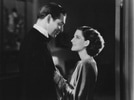
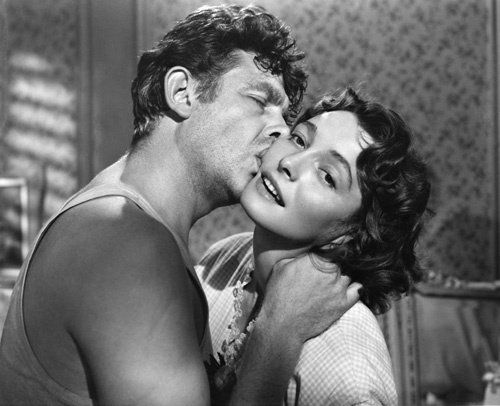
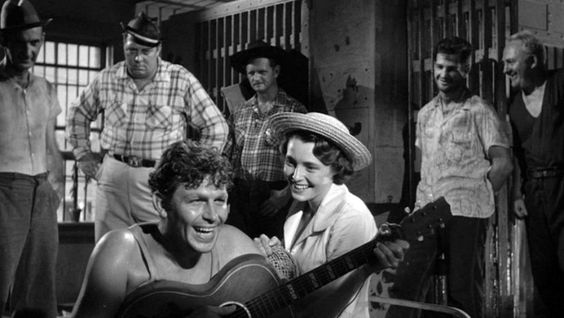
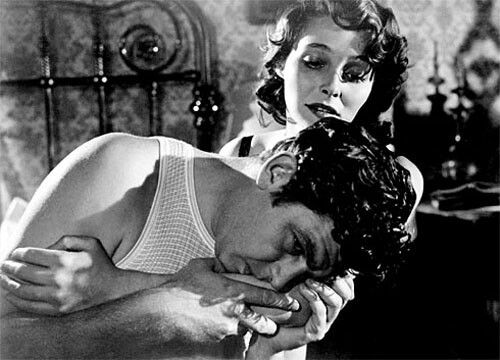
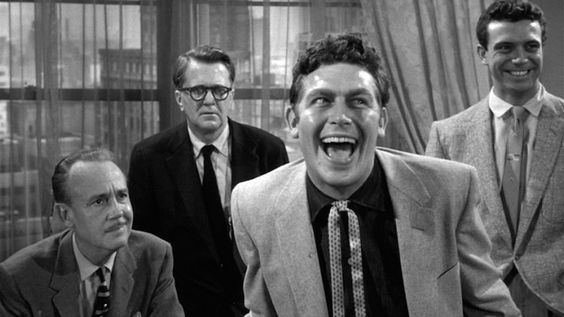
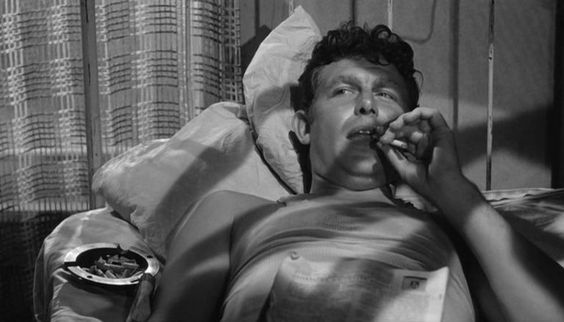

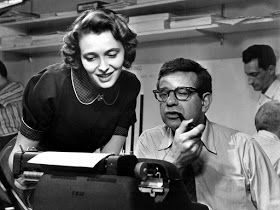
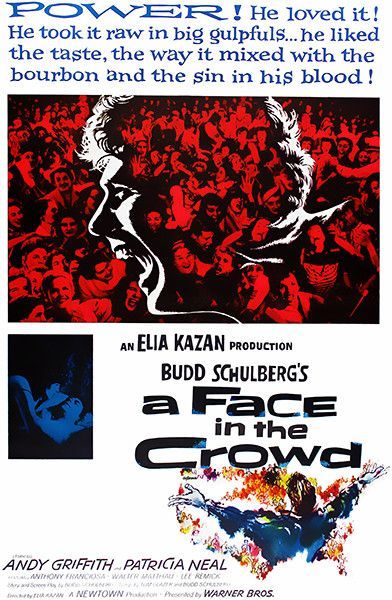
 RSS Feed
RSS Feed